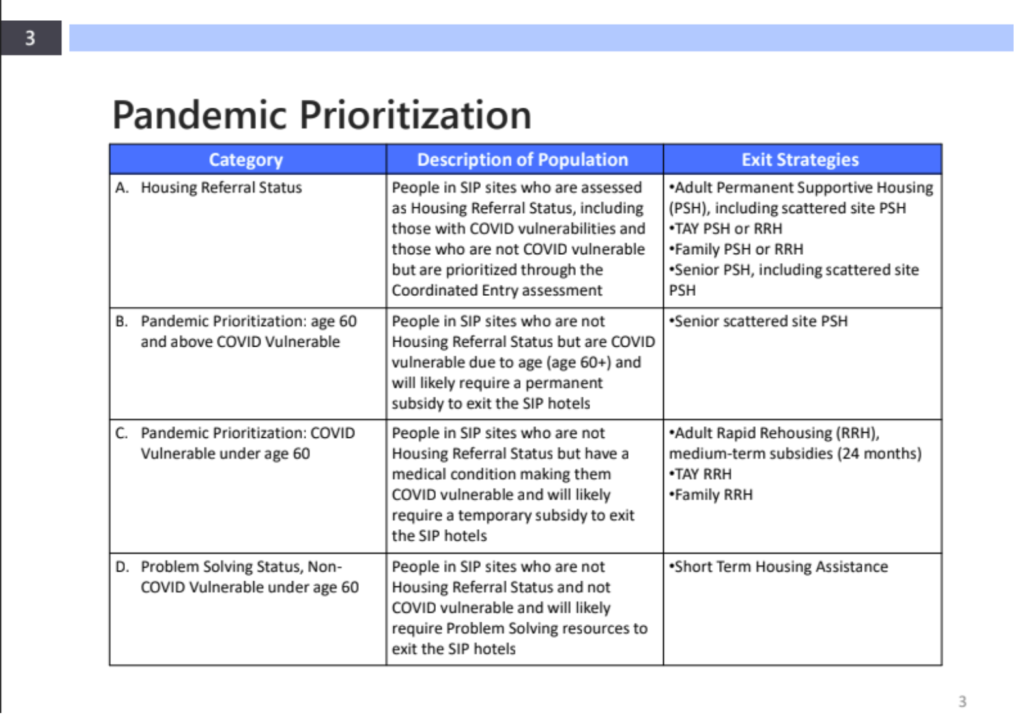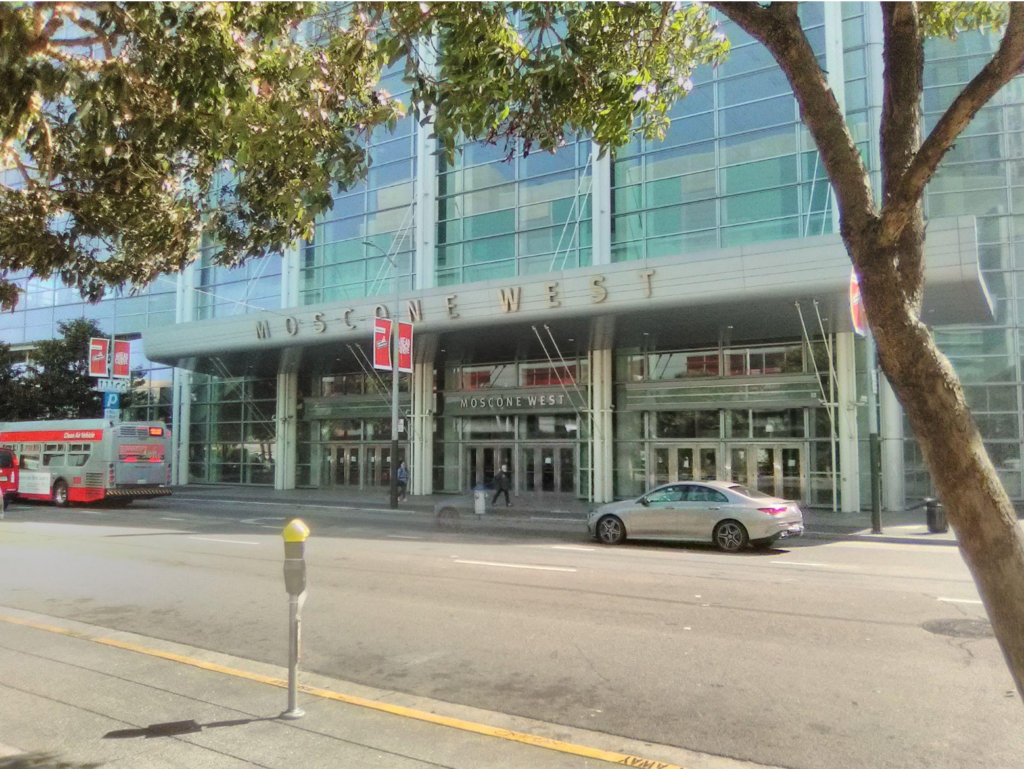The City of San Francisco is set to “reopen” in June, while the temporary shelter at Moscone Center West will close at the end of that month. But where some 100 otherwise unsheltered residents will go afterward, or how they will get there, is not yet clear.
The state has announced one hard deadline, though: June 15, when California will lift most of its COVID-19 restrictions.
As the City sees nearly 7 of 10 adult San Franciscans complete their vaccinations and the weekly average number of COVID-19 cases drops to its lowest level since the emergency order in March 2020, unhoused people remain in shelter-in-place hotels, authorized and unauthorized outdoor encampments, as well as socially distanced congregate shelters.
But on June 30, the shelter and the COVID-19 Command Center based at the Moscone Center complex, which has acted as the nerve center of the City’s pandemic response, will revert to its previous role as an event center hosting trade shows and exhibitions.
At Moscone West alone, where the shelter operates, the lobby and the first floor exhibit hall cover an area comparable to a city block at more than 124,000 square feet; the ceiling height is a cavernous 27 feet. The shelter made room for up to 115 people at the height of the pandemic.
Meanwhile, Moscone guests — as well as homeless advocates — wait to see if an exit strategy takes them into housing — or leaves them out on the street.
At the same time the City lodged more than 2,000 unhoused people in shelter-in-place hotels, most ostensibly on a path toward housing. But the remaining Moscone guests are likely to wind up in another congregate setting.
Street Sheet obtained a Five Keys Housing Services memo dated April 19 to staff, and it confirmed that many guests might be transferred to Site S — the shelter formerly known as Next Door — which accommodated about 300 people before the pandemic.
Another memo issued to guests on April 20 from the COVID-19 Command Center announced Moscone’s impending closure and a halt to accepting new clients. Though the center tried to assure them that City employees and contracted shelter staff would do their best in facilitating a smooth transition, its letter never mentioned housing.
“We understand this news can be scary and stressful. Please know that Five Keys, Bayview-Hunters Point Foundation and the City agencies are working diligently together,” the center wrote. “We will work with you to identify your needs and make every effort to offer you another shelter placement.”
The Coalition on Homelessness, which publishes Street Sheet, learned that the Department of Homelessness and Supportive Housing is urging clients to enter the coordinated entry system, which serves as the City’s homeless database.
Alan Nego, a guest at Moscone, is still waiting for housing after completing the intake for Coordinated Entry two years ago. He said his history of abuse as a child and trauma should have sped up his entry into housing. Nego is also waiting on a replacement of his state ID, which he needs for housing applications, among other things.
“I’ve been lowest to the lowest, but I did not qualify,” he said.
Despite the City’s inclination to shuffle people off to other shelters, staff say other placement options could be carried out. As Moscone guests are assessed for their exit, their avenues to housing could be determined by their age and COVID vulnerability as would that of people in SIP hotels, according to a prioritization plan that they shared with the Coalition.

One possible track in this plan is housing referral; people who have been triaged through Coordinated Entry are assigned to this status with the goal of placement in permanent supportive housing.
Another involves giving permanent housing subsidies to people 60 or older with medical conditions. They would likely be placed in permanent supportive housing geared toward an older population.
Those younger than 60 but still medically vulnerable may enter a rapid rehousing plan funded by the City for a temporary subsidy that allows them the flexibility to apply for private-market housing.
People younger than 60 and with no COVID risk would be assigned to “problem solving status,” which entails examining potential barriers to housing and providing short-term housing assistance.
Carlos Wadkins, a human rights organizer with the Coalition on Homelessness, said that the plan would be a good test case for unhoused people in all forms of shelter-in-place housing.
“If you’re eligible for housing, then you’re prioritized. If you’re not, you have access to additional resources,” he said. “We need more housing to offer, and we’d like to see the pool expanded to the people in Moscone and the safe sleep villages.”
Wadkins added, “What we have to see in Moscone is whether the City can make the same commitment to housing, as compared to what they’re doing for hotels.”
###


